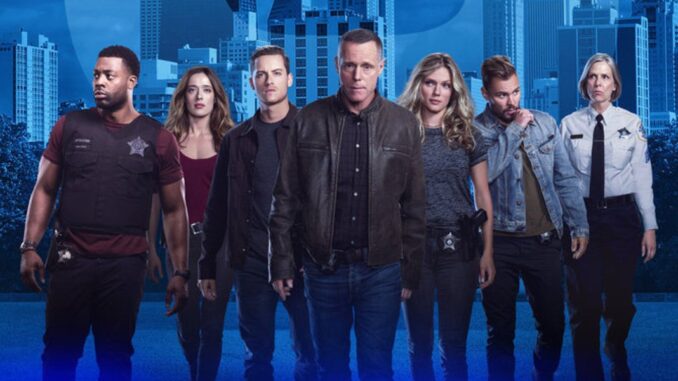
Navigating the Ashes: Chicago P.D. 2025 and the Future of Voight and Upton
The year is 2025 in the gritty, unforgiving streets of Chicago. The city hasn’t changed much; the sirens still wail, the crimes are still brutal, and the lines between good and evil remain blurred. But within the walls of the 21st District, a seismic shift has occurred. Season 11’s shocking departure of Hailey Upton leaves a gaping hole, not just in the squad, but in the already fractured foundation of Hank Voight’s world. “Chicago P.D.” 2025 is a landscape scarred by loss, and the future of Voight, and his relationship with the ghost of Upton, is a minefield of regret, resentment, and the faintest glimmer of redemption.
Voight, always a creature of habit and ruthless efficiency, is now a man haunted by the echo of Upton’s absence. He’s become even more solitary, the lines on his face etched deeper by the weight of unspoken words. He still walks the tightrope between justice and vigilanteism, but now there’s a noticeable hesitation, a flicker of doubt that wasn’t there before. The ghost of Upton’s moral compass, which he so often pushed against but secretly relied upon, now serves as a constant, accusatory presence. He sees her in the new recruits, in their naiveté and idealistic fervor, forcing him to confront the brutal realities he has long normalized.
The squad dynamic has been irrevocably altered. Burgess and Ruzek, now parents, are navigating the complexities of raising a child in a city that relentlessly threatens their innocence. Atwater, still the moral center, carries the unspoken burden of holding the team together, subtly challenging Voight’s methods, aware that another loss could shatter them all. The new additions to the team, handpicked by Voight himself, are mirror images of Upton in her early days – ambitious, bright, and eager to make a difference. He pushes them, tests them, hoping to find a sliver of her spirit, but only ends up projecting his own guilt and regret onto their fragile hopes.
Voight’s relationship with the specter of Upton is the most compelling tragedy. He revisits places they frequented, not in romantic longing, but in a desperate attempt to understand her decision, her departure. He pores over old case files, replaying their interactions, searching for clues he missed. He even starts attending therapy, a reluctant admission of his crumbling mental state. These sessions are not about healing, but about understanding. He wants to know if he drove her away, if his relentless pushing and moral compromises were the cause of her leaving.
The relationship, even in its absence, takes on a new dimension. It is no longer defined by their professional partnership or their complicated mentor-mentee dynamic. Instead, it becomes a post-mortem examination of Voight’s leadership and his personal shortcomings. Did he truly care for her, or was she just another pawn in his game? Did he see her potential, or was he blinded by his own self-righteousness? These are the questions that plague him, driving him to the brink of self-destruction.
However, amidst the ashes, a faint glimmer of hope emerges. Voight begins to realize that honoring Upton’s memory means embracing the change she represented. He starts to trust his team more, delegating authority and encouraging their individual strengths. He loosens his grip on the reins, allowing them to make mistakes and learn from them. He begins to understand that true leadership isn’t about control, but about empowering others to become their best selves.
The future of Voight and Upton’s relationship is not one of reconciliation or romantic closure. It is a future where her absence serves as a catalyst for his transformation. It is a future where he finally confronts his demons and acknowledges the damage he has caused. It is a future where he strives to be a better leader, a better mentor, a better man, driven by the memory of the woman who challenged him to be more than just a survivor in the brutal landscape of Chicago.
“Chicago P.D.” 2025 is a story of loss, regret, and the enduring power of human connection. It is a testament to the fact that even in the darkest of times, there is always the possibility of growth and redemption. And for Hank Voight, the ghost of Hailey Upton serves as a constant reminder of the price of his choices, and the potential for a future where he can finally find peace, not in forgetting the past, but in learning from it. The legacy of their complex relationship, though forever altered, continues to shape the future of the 21st District, one case, one choice, one moment of truth at a time.
